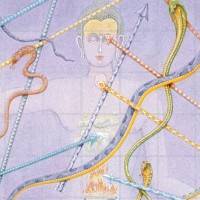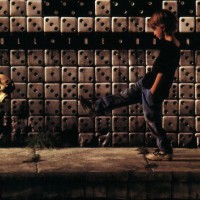Early on, Rush shrugged off the image of “prog-rock band,” and all that ensues with such a title – epic song lengths, complicated, possibly esoteric storylines, etc. – and spent the better part of their career proving that it was possible to craft hook-laden pop-rock around astounding musicianship. With Clockwork Angels, they embraced that staple of the progressive movement: the concept album, a fact some who are less familiar with the band may be surprised they have never attempted before.
The story was, by far, secondary to Clockwork Angels, which arrived on June 12, 2012. It was obvious upon that first time through and it remains now: The story here isn’t front and center like it was with 2112 or Hemispheres – and that’s OK. Sacrifice story for the sake of tighter writing, sacrifice story for the sake of music – Rush was seasoned enough to know not to sacrifice anything the other direction.
So while the story was a bit muddled and incoherent (cleared up with the help of the lyric sheet and snippets of the story Neal Peart and novelist Kevin J. Anderson pieced together for a subsequent novelization), Rush pumped it all back into what we are into the band for in the first place – and that’s where the exciting action comes in.
After nearly 40 years of recording, Rush had a large and dedicated fanbase behind them who would support the band through pretty much anything, including lesser albums. It’s one thing for, say, the Rolling Stones to churn out some fodder for store shelves, something to get their name out there again before the big tour. It’s another for a band of this vintage to knock one out of the park, and that’s just what Rush did.
Clockwork Angels was no mere shelf-filler, name-reminder: This was pure Rush. This was the Rush that always had fans foaming at the mouth, raving to friends. This was Rush at the peak of their game, four decades into their career.
It seemed impossible and yet … there’s none of that Old Band Syndrome here. That’s a name I’ve given to the unfortunate tendency of “elder bands” to attempt the heavy music they used to play, but wind up doing so at an excruciating pace. The Clockwork Angels material stylistically careened wildly from one period to the next (that’s one benefit of Rush having been so flexible and curious all along), it never bogged down to a snail’s pace as so many other “dinosaur acts” seem to. Rush, a band of men on the cusp of 60, threw nearly as many twists and turns into this new music as they did in Permanent Waves.
That brings up an interesting thing: The great Permanent Waves. For some reason, it’s the only album I find an analog in throughout their catalog for Clockwork Angels. While not a concept album, it’s another almost flawless album that has a similarly ambitious feel throughout, taking listeners on an involving ride that only makes them want to jump back on again at the end. Though the Rush die-hards will disagree, this band (like all bands) have few near-flawless albums. Time after time, however, I find myself reaching to re-cue Clockwork Angels when the last notes fade.
[SOMETHING ELSE! REWIND: We returned to several of our all-time favorites from Rush, including tracks from ‘2112,’ ‘Hemispheres,’ ‘Roll the Bones’ and ‘Presto.’]
What is it that brings me back? Most simplistically, it’s hearing Rush sound so vital and vibrant. Rush has typically done what it wanted to do, but just like you can sense a smile on the face of someone on the other end of the telephone line, music listeners can sense that same smile – maybe in the form of enthusiasm – in the playing. A little extra finesse here and there from the late Peart’s expert drumming, a little something extra wild in Alex Lifeson’s guitar solo, or the flair of a grace note or two in Geddy Lee’s bass line. Rush was typically at the top of their game – that’s what Rush was known for – but sometimes they play at the very top of the top, as here.
Ultimately, however, that’s not enough; it’s not concrete enough. Moments are what bring us back, aren’t they? Not just whole songs, not at first – though we love the songs, too, obviously. There’s always a pull to hear a specific this and another perfect that.
I’ve just got to hear “The Anarchist” again, again, maybe again – so good, so perfect, how Geddy Lee leads with his stair-stepping bass until Alex Lifeson comes in with that phasey guitar, and the song’s later shades of ’80s Rush with the keyboard washes. Alex’s solo seals the deal, an Arabian-tinged cascade of notes that evokes all those great solos that somehow disappeared in the ’90s. Shivers up the spine, goosebumps all over my arms – every time. It was the first time I’d gotten shivers from new Rush music in a long time.
Or how about “Carnies,” a tune whose name I cringed at when the track listing emerged simply because of the thought of Neal Peart shoe-horning the title into the chorus? Simply put, it became one of my favorites on the album, from the opening homage to “Working Man” to Geddy’s clever reworking of the familiar bouncy carnival theme that underpins parts of the song. And, again, Alex cut loose with more great solo moments: The smile sounds obvious to me.
There’s more, though. “The Wreckers” resurrected – stylistically, at least – the feel of Rush in the late ’80s, without so many keyboards. There was a bit of “Mission” here, in spirit if not in sound, though this may have been the most keyboard-laden of the album’s dozen. Those shivers came again right at the end of the song as Alex’s guitar stepped forward, peaking its head up and squalling away into one of his signature yearning solos … only to get faded out seconds later.
It’s still one of the most tragic edits I’ve ever heard. Why? Why?! Why cut that out?!
Rush saved the best for last, however. Tucked into the culmination of Clockwork Angels was one of their most moving songs ever: “The Garden.” The whole band evoked goosebumps and shivers. Everything clicked in exactly the right way at exactly the right time. A bed of strings backed Rush, gentle piano chimed in during the break, and Alex unfurled another of his signature solos. They’d attempted songs like this before, and mostly succeeded (think “Available Light,” from 1989’s Presto) but here, this song, was where they got it all just right. The message of the song was also uplifting, despite its melancholy disposition …
The future disappears into memory
With only a moment between
Forever dwells in that moment
Hope is what remains to be seen
And that is what makes me hit “play” again. Funny enough, it’s a lyric that sticks with me right to the end of that song, rather than the powerful contributions of the trio. The words ring true, strong and emphatic, like the final notes of the song ring out into the fade: It’s not enough. Go back around again for another ride.
The cycle repeats. Go back around. It still won’t be enough.
- King Crimson’s Brief But Important Double-Trio Era Peaked With ‘Thrak’ - April 14, 2025
- How David Bowie’s ‘Reality’ Stood Out For What It Was Not - September 29, 2023
- Metallica’s ‘St. Anger’ Was Always Much Better Than They Said - June 8, 2023





Dear Tom,
I just posted a little comment about your article at the rushisaband.com website.
Here it is FYI:
#18 – Posted 6/10/12 @4:01AM by Micky [contact]
Kudos at Tom Johnson at Something Else.
Great great and great review.
This person knows what to write about and how.
Really my deepest congratulations to him.
I find myself deeply agreed with everything he talks about in the article.
Among many of the lines I’d like to quote, I chose this:
(…) For Angels is no mere shelf-filler, name-reminder. This is pure Rush. This is the Rush that has always had fans foaming at the mouth, raving to friends. This is Rush at the peak of their game, four decades into their career. It seems impossible and yet …(…)
Congratulations Tom. Well written.
And I would dedicate this to all the Priests of Syrinx who are, despite of all, still around.
There is no worse blind that the one who doesn’t want to see…
Now I got the final lines of the article and I’ve read about your biography.
All is explained then ! 🙂
Congrats again mate.
Michele/Micky